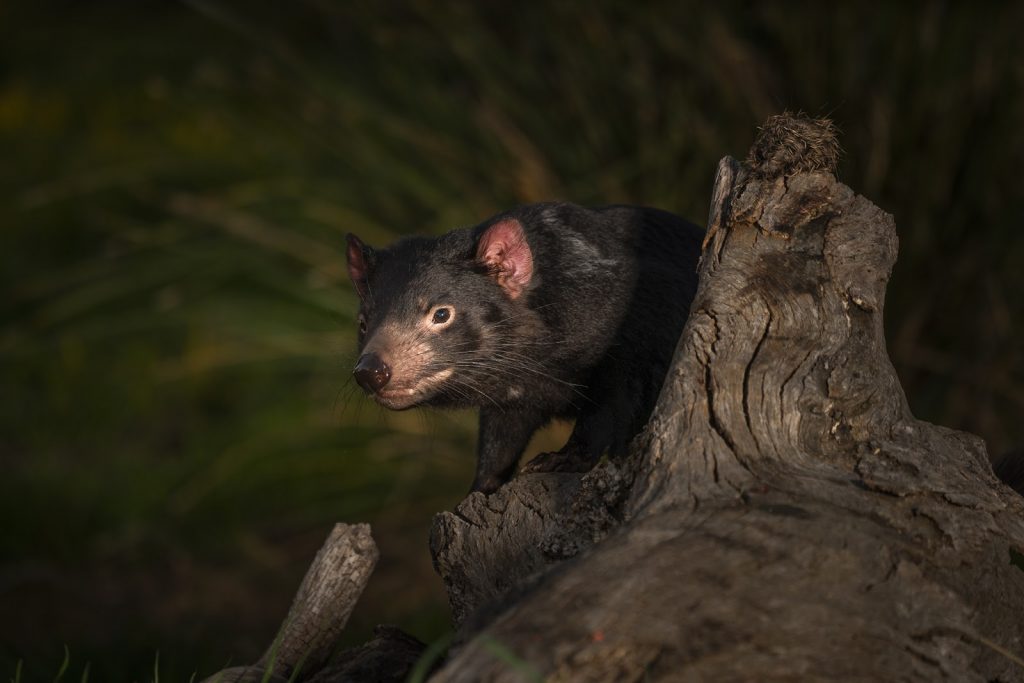Tasmania, Australia’s island state, has new and meaningful experiences for travelers with a focus on sustainability and a positive impact on the community, as international travel returns after two years.
Tasmania, Designed for Nature

Did you know that Tasmania has the cleanest air in the world? This is monitored by the Cape Grim Baseline Air Pollution Station. The lack of pollution is due to the position of Tasmania in the Southern Ocean, far from other landmasses. And over 20% of Tasmania is Tasmanian Wilderness World Heritage Area. The area which covers 1.58 million hectares includes national parks, marine, and forest reserves. With such incredible features, Tasmania Tourism has a strong responsibility in ensuring experiences provide support and protect this rich heritage as sustainable tourism becomes part of their DNA.
Sustainable Tourism Development Through the Pandemic
When Australia closed its border to the world two years ago, Tasmania’s local trade heroes took the time to reflect on how to improve the authentic and positive impact of travel in the destination and came up with new sustainable initiatives, in a challenging time for tourism in the pandemic.
The country reopened to international travelers on February 21. Visitors to Tasmania can expect a slew of new experiences with a focus on sustainability and a positive impact on the community, such as Tasmanian devil conservation, indigenous tourism experiences, becoming a beekeeper for a day, and more.
The offerings, from walks, to wildlife and cultural experiences, support Tasmania’s goals to protect endemic wildlife and their natural habitats and support the island state’s commitment to becoming a carbon-neutral destination by 2025.
So What’s New and Exciting for 2022?
It’s All About Nature Walks
Tasmania’s walks, renowned as some of the best in the world, just launched the Walk into Luxury at Pumphouse Point, a new 4-day guided walk that takes in the best sites in the Cradle Mountain-Lake St Clair National Park and Mount Field, giving visitors an opportunity to encounter and learn about wildlife including Tasmanian devils, quolls, platypus, echidna, and wombats.
WWF Walk for Wild, is the largest and most innovative wildlife and landscape regeneration program in Australia’s history, launched Oct 2021. A chance to trek through different parts of Tasmania including Bay of Fires and Cradle Mountain. All sales from these walks with Tasmanian Walking Company (TWC) will be donated to restore wildlife and habitats and boost sustainable agriculture. TWC, and its not-for-profit entity, works with the community to inspire people’s connection with nature and cultivate real change with a boots-on-ground approach.
New expert-led retreats, for those interested in yoga, art, writing, and photography will focus on the restorative power of nature, meditation, writing, and cold-water immersion - including dips with a qualified practitioner, fireside journaling, and meditation among towering Eucalypts, and immersing in nature.
Foraging and eating native bush foods, learning about the land and its history, and the impact of bushfires, are featured on a new Indigenous-owned-and-led culinary walk around piyura kitina, Risdon Cove Hobart.
Did you say wildlife conservation?
Conservation efforts through tourism around Tassie devils are firmly established, but many experiences have refreshed during the pandemic, and are seeing good results in population recovery of the devil, the world’s largest carnivorous marsupial.
Maria Island Walk, a member of the Great Walks of Australia, actively supports a variety of conservation programs such as the Forty Spotted Pardalote Recovery and Save the Tasmanian Devil programs.
Maria Island Walk has earned widespread acclaim for its environmentally friendly practices, contribution to conservation projects, and leadership in the eco-tourism and walking sectors.
At Freycinet National Park, one of the most significant sustainability initiatives is an on-site, one-hectare, free-range enclosure that provides sanctuary for endangered Tassie Devils. While the devil experience at Saffire Freycinet, part of the Luxury Lodges of Australia collection is not new, it has been helping to achieve results with Tasmanian devil population recovery. The largest independent study to date of the animals’ genetics shows they are adapting to survive a type of cancer scientists feared would cause their extinction.
Ever dreamed of Becoming a Beekeeper for the day?
Saffire also has its sights on bees and launched a beekeeping experience for an up-close look at bees creating Tasmanian honey.
Other new experiences explore Tasmania’s nature-based tourism icon, Wineglass Bay, from the water. The rugged granite coastline of the Freycinet Peninsula, white sandy beaches and Wineglass Bay, sea caves, blowholes and seals, and sea birds are on show for the cruise by Eco-tour operator Pennicott Wilderness Journeys, who holds Advanced Ecotourism Certification and through Greening Australia is 100% carbon offset.
Tasmania’s focus on sustainability, conservation efforts, community, and promoting cultural heritage has grown in the pandemic, and operators are ready to share new offerings when international travelers return. Recognizing that traveling responsibly is never out of reach, and prioritizing sustainable practices means Tasmania, a wildlife and nature lovers’ paradise will remain a must-visit destination for future generations.

